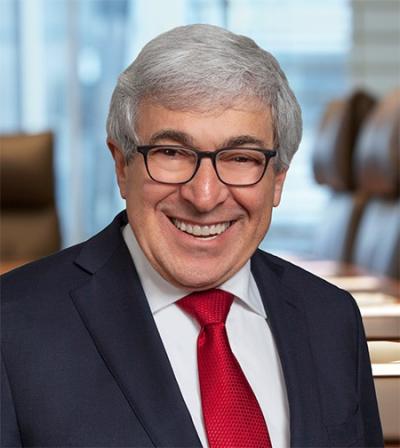After 45 years at Henry Schein, including more than three decades as its CEO, Stanley Bergman has announced plans to retire by the end of this year.
The decision to step down as chief—though Bergman will hold onto his seat as chairman of the board—comes in the middle of the company’s years-long project to embrace digital technologies and refocus commercial efforts on high-margin businesses.
“With the progress made advancing our BOLD+1 strategic plan and with strong management in place, it is the right time for me to retire at the end of the year,” Bergman said in a statement.
“I look forward to working with the Board to identify my successor and effect a smooth transition,” he added. “Henry Schein has been my professional home for 45 years and I will conclude this chapter of my life with enormous gratitude for the opportunity to serve as CEO and with great confidence in the Company’s future.”

Since Bergman was named CEO in 1989, the medical, surgical and dental supply maker has seen its annual revenues grow from $225 million to $12.7 billion in 2024, averaging out to a compounded growth rate of about 17.5%. And after going public in 1995, Henry Schein’s market cap has ballooned from $290 million to nearly $9 billion, placing the company and its some 25,000 employees in the S&P 500 and Fortune 500.
In a letter sent to staff (PDF), Bergman reflected on transforming the company from a primarily mail-order enterprise focused on dental supplies to a full-service international distributor spanning different specialties, as well as a developer of dental practice management software.
“This team has overcome several challenges in the past few years, including the pandemic, a cyber incident, and the market pressures facing distribution companies,” he wrote. “By focusing on gross profit initiatives, expense controls, and improved customer satisfaction, we have created what we believe to be a best-in-class distribution company within health care.”
In 2023, the company suffered a ransomware attack that exposed the personal health information of more than 166,000 people, took manufacturing and distribution systems offline and ultimately reduced sales by between $350 million and $400 million.
More recently, KKR made a $250 million investment in the company in May, acquiring about 12% of its shares and two board seats.
“I fully expect that this team will elevate Henry Schein to new heights by continuing to advance the BOLD+1 strategy and working with KKR on value creation initiatives and a broad-based employee ownership program,” Bergman wrote.